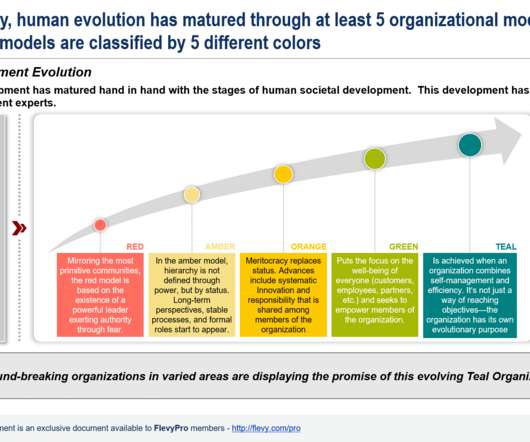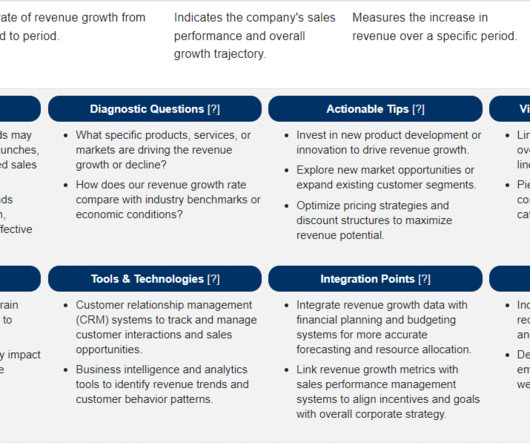5 Stages of Management Evolution
Flevy
DECEMBER 23, 2022
The aim of management at the 3 rd stage of organizational evolution is to defeat the rivals while realizing profit and growth. Stakeholders take place of shareholders as the chief reason for operation. For even more best practices available on Flevy, have a look at our top 100 lists: Top 100 in Strategy & Transformation.












Let's personalize your content